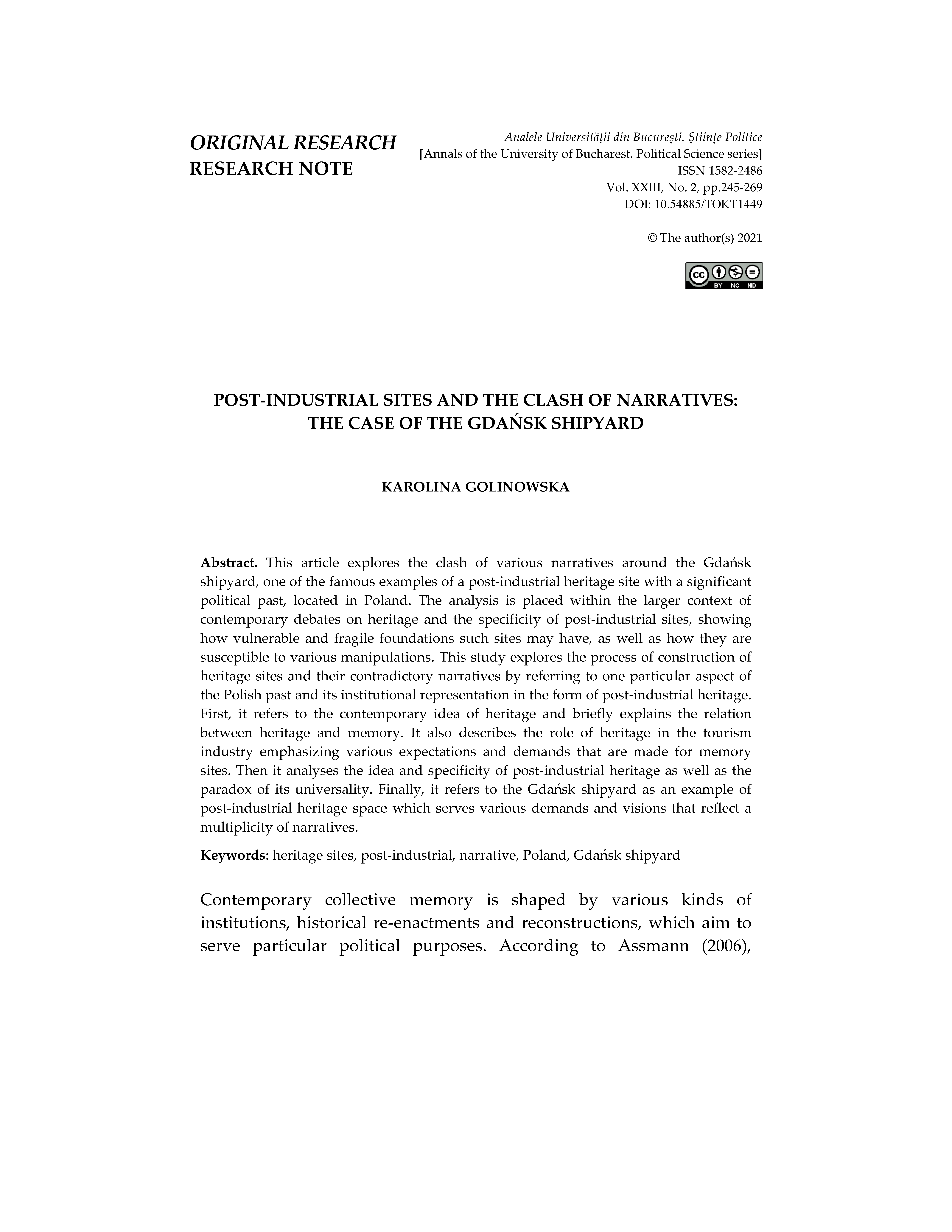POST-INDUSTRIAL SITES AND THE CLASH OF NARRATIVES: THE CASE OF THE GDAŃSK SHIPYARD
DOI:
https://doi.org/10.54885/TOKT1449Cuvinte cheie:
heritage sites, post-industrial, narrative, Poland, Gdańsk shipyardRezumat
This article explores the clash of various narratives around the Gdańsk shipyard, one of the famous examples of a post-industrial heritage site with a significant political past, located in Poland. The analysis is placed within the larger context of contemporary debates on heritage and the specificity of post-industrial sites, showing how vulnerable and fragile foundations such sites may have, as well as how they are susceptible to various manipulations. This study explores the process of construction of heritage sites and their contradictory narratives by referring to one particular aspect of the Polish past and its institutional representation in the form of post-industrial heritage. First, it refers to the contemporary idea of heritage and briefly explains the relation between heritage and memory. It also describes the role of heritage in the tourism industry emphasizing various expectations and demands that are made for memory sites. Then it analyses the idea and specificity of post-industrial heritage as well as the paradox of its universality. Finally, it refers to the Gdańsk shipyard as an example of post-industrial heritage space which serves various demands and visions that reflect a multiplicity of narratives.




